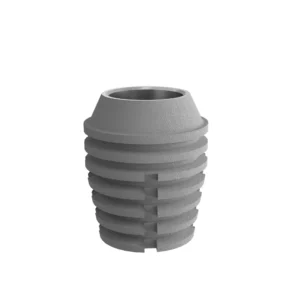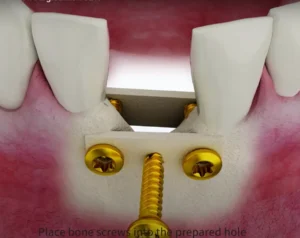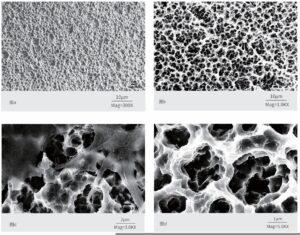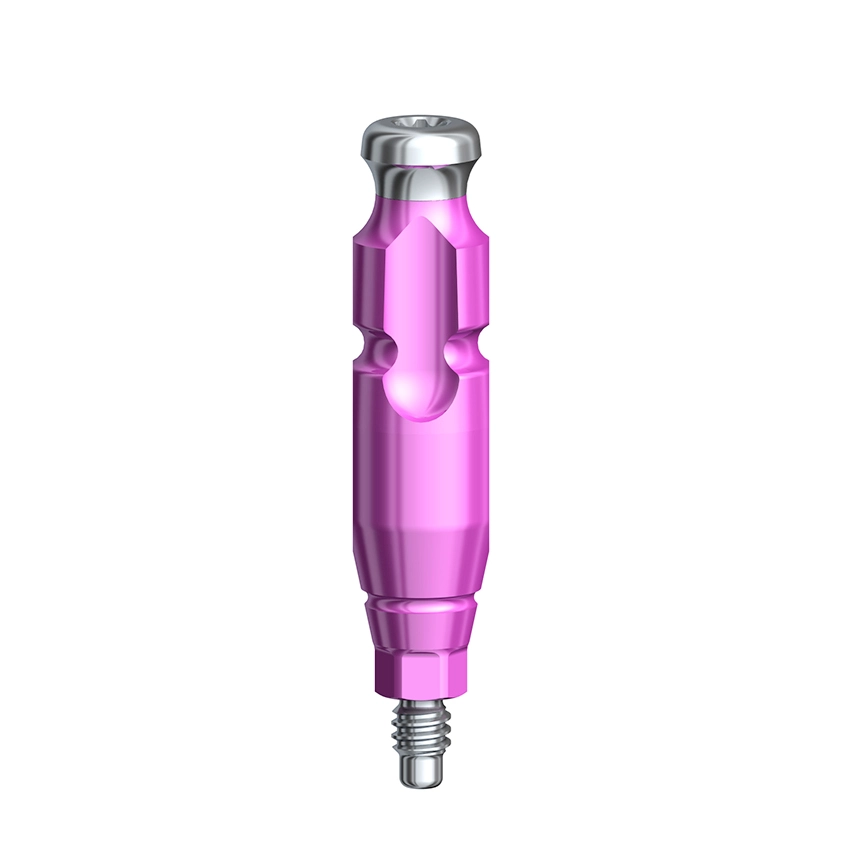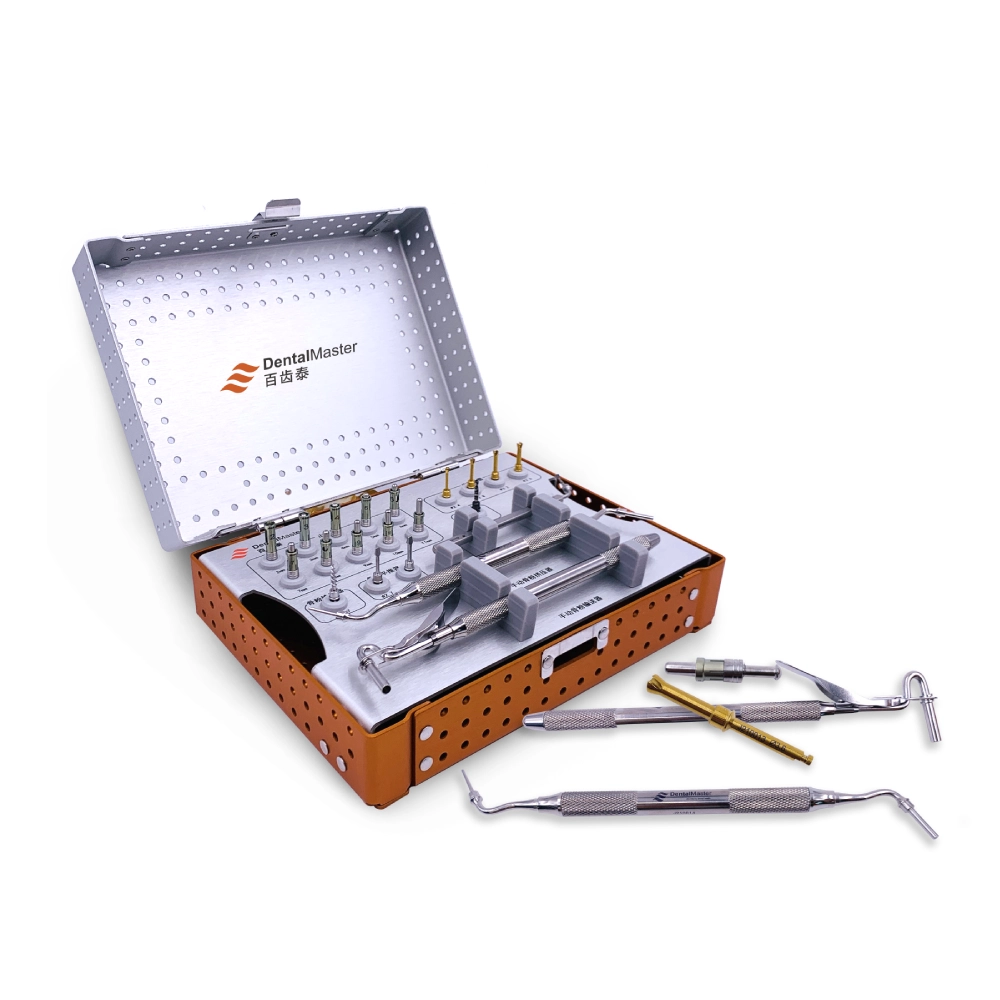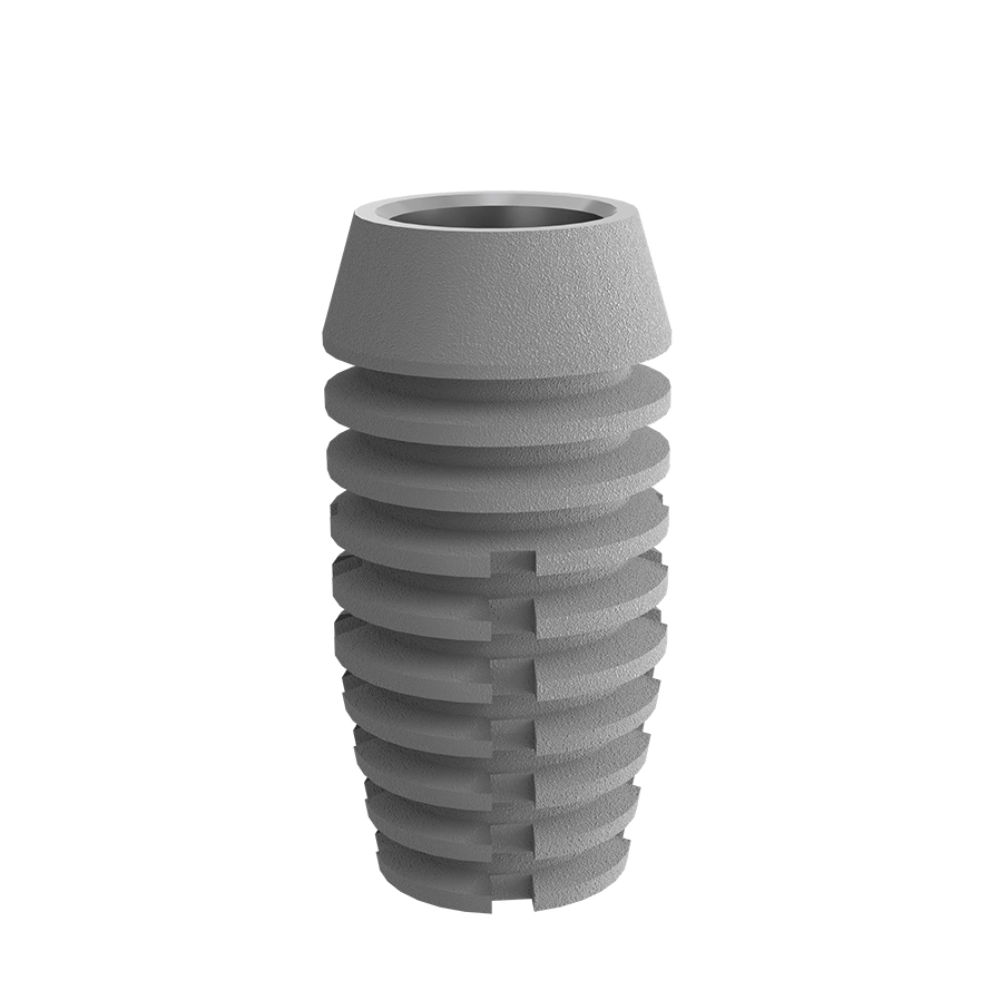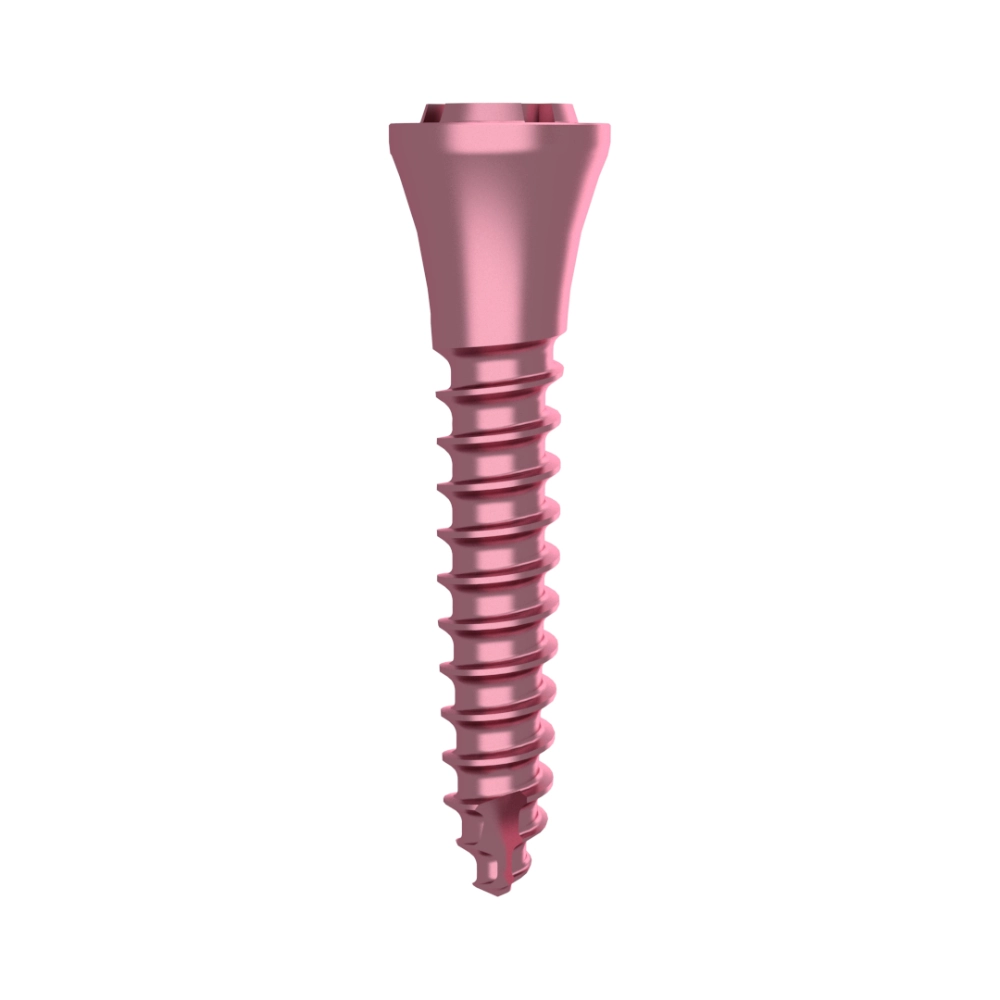In modern dentistry, dental implants have revolutionized the way we replace missing teeth, offering patients exceptional durability and aesthetics. However, with over 150 companies worldwide competing in the dental implant market, selecting the most suitable brand can be an overwhelming challenge for the average patient. When it comes to oral health, it’s natural to seek the best implant brand without compromise.
Dental clinics across the globe carefully curate and maintain partnerships with the implant brands they deem most suitable for their patients, often opting for long-term collaboration with the top performers. As such, patients are encouraged to consider the brands recommended by dental professionals or clinics, as this approach is often both efficient and reliable.
To help you make an informed decision, we have compiled a comprehensive list of the top ten dental implant brands in the market as of 2025. Each brand is accompanied by a concise introduction, designed to guide you in confidently choosing the best option for your needs.
Top Dental Implant Brands
- Nobel Biocare
- Straumann
- Zimmer Biomet
- Dentsply Sirona
- BioHorizons
- Hiossen
- Euroteknika
- Osstem Implant
- Bicon
- Astra Tech Implant System
1. Nobel Biocare
1. Brand Overview
- Brand Name: Nobel Biocare (also known as Nobel Dental Implants)
- Parent Company: Nobel Biocare Services AG
- Registration Number: 8127075
- International Classification: 10
- Alias: Nobel Dental Implants
2. Development History
In 1952, Professor Per-Ingvar Brånemark, known as the “Father of Modern Dental Implants,” discovered and pioneered the famous “osseointegration theory.”
In 1965, Professor Brånemark performed the world’s first dental implant surgery, laying the foundation for modern implant dentistry. The first patient to receive titanium dental implants, Gösta Larsson from Gothenburg, Sweden, was treated by Professor Brånemark. These implants functioned perfectly for 41 years.
In 1981, to benefit more patients with missing teeth, Professor Brånemark collaborated with the Nobel Prize Foundation’s Bofors company to establish Nobel Biocare, marking the beginning of the industrial production of titanium implants.
Since then, Nobel Biocare has continuously introduced innovative products and technologies:
- 1989: Launched CAD/CAM all-ceramic restoration Procera
- 1997: Introduced the NobelReplace® tapered implant
- 1998: Developed the All-on-4® treatment concept
- 2000: Released TiUnite® surface treatment technology
- 2005: Presented NobelGuide® guided implant surgery solution
- 2008: Introduced the NobelActive® implant
- 2011: Launched the NobelReplace® Conical Connection implant
- 2013: Unveiled the NobelProcera® 2G desktop scanner
- 2015: Released a complete posterior tooth solution and announced a global lifetime warranty program.
3. Products and Services
Nobel Biocare offers a comprehensive range of dental implant solutions, including implant systems, standardized and CAD/CAM personalized restoration solutions, digital diagnostic software, guided surgery solutions, and bone regeneration materials.
The implant system is the core product, featuring multiple implant types such as NobelActive™, NobelParallel™ CC, NobelReplace® CC, Brånemark System®, and NobelSpeedy®. These options address various implant restoration needs under different clinical conditions.
4. Brand Advantages
- Superior Materials: Nobel implants are made from pure titanium, offering excellent biocompatibility and the ability to integrate with human bone.
- Innovative Design: Unique surface treatment technology, such as TiUnite®, increases the contact area between the implant and bone tissue, accelerating the healing process. Patented thread designs and conical connections enhance implant stability and initial anchorage.
- Exceptional Stability: Implants bond closely with the alveolar bone, providing excellent stability and chewing functionality comparable to natural teeth.
- Longevity: Nobel implants boast an extended lifespan, with studies showing they can last over 40 years.
- Broad indications: suitable for single-tooth or multi-tooth loss, full-mouth rehabilitation, and patients seeking to avoid the discomfort of removable dentures.
2. Straumann
1. Brand Overview
Straumann, also known as Straumann Group, is a company specializing in dental implants and related solutions. Its extensive product range includes various implant models, digital solutions, and specialized implants for complex cases, catering to diverse patient needs.
2. Product Features
- High Biocompatibility:
Straumann implants are made from Grade 4 pure titanium or titanium-zirconium alloy, ensuring excellent biocompatibility. This minimizes the risk of rejection, promotes osseointegration, and guarantees long-term stability of the implants. - Rapid Osseointegration:
Straumann’s proprietary SLActive hydrophilic surface treatment technology enables the implant surface to quickly absorb human proteins, fostering bone cell attachment and growth. This significantly reduces osseointegration time and increases the success rate of procedures. - Diverse Product Line:
Straumann offers a wide range of implant models, such as tissue-level implants, bone-level implants, and tapered-cylindrical implants, meeting varied patient needs. The company also provides specialized implants for complex cases, such as sinus lift procedures, further expanding its application scope. - Long-Term Stability:
Straumann implants undergo rigorous clinical validation, achieving an extremely high success rate and long-term stability. Clinical studies indicate a success rate of over 95% in long-term usage, providing patients with reliable restorative solutions.
3. Product Series
- Tissue-Level Implant Series:
Designed for single-stage surgery, this series simplifies procedures and reduces treatment complexity. It enables bone preservation while protecting peri-implant health. - Standard Implants:
Straumann standard implants are pioneers in transgingival healing, particularly suited for typical single-stage surgeries. Equipped with the synOcta® connection, they pair with corresponding restorative components to ensure reliable outcomes. - Aesthetic Implants:
Straumann aesthetic implants are tailored for optimal esthetic outcomes in anterior regions, factoring in the biological width. The shorter machined collar provides flexibility in soft tissue management, enabling non-submerged, semi-submerged, and submerged healing. - Narrow Neck CrossFit® Aesthetic Implants:
These implants are ideal for use in space-constrained conditions. Their high mechanical strength allows implantation in the anterior and premolar regions across various restoration types.
4. Brand Advantages
- Innovative Technology:
Straumann continually introduces cutting-edge products and technologies, such as digital solutions and integrated orthodontic systems, to offer superior treatment options for patients. - Professional Support:
Straumann boasts a dedicated team providing technical support and training to ensure clinicians are proficient in using its products and technologies. - Global Recognition:
Straumann implants are widely used and trusted worldwide, renowned for their exceptional quality and efficacy.
3. Zimmer Biomet
1. Company Background and Strength
Zimmer Biomet, established in 1927, is a long-standing American brand.
The company specializes in the design, development, manufacturing, and sale of various medical products, including dental implants. With strong R&D capabilities and extensive market experience, Zimmer Biomet is a trusted name in the healthcare industry.
2. Dental Implant Products
Zimmer Biomet’s dental implant line, often referred to as “Zimmer Dental Implants” or “Biomet Implants,” is highly regarded in the market. Key features include:
- Tapered Screw-Vent Mini Implant System:
Designed for patients with compromised bone conditions or narrow ridges, this system has minimal requirements for alveolar bone and offers excellent adaptability. - High-Quality Materials and Superior Design:
Utilizing premium biocompatible materials and innovative designs, Zimmer Biomet provides durable and reliable tooth restoration solutions for patients with missing teeth. - Surface Treatment and Implant Technology:
Technologies such as MTX microtextured surface treatment enhance early bone healing and improve implant survival rates. Additionally, high-precision virtual cold welding technology prevents bacterial infiltration between the implant and abutment, extending the implant’s lifespan.
3. Market Applications and Reputation
Zimmer Biomet’s dental implants have been widely adopted worldwide, with over 5 million successful cases to date, demonstrating the reliability and market acceptance of its products.
The implants are particularly popular in North America and are known for their excellent primary stability and broad applicability. They are especially suited for edentulous patients, as well as those with insufficient bone volume or osteoporosis.
4. Dentsply Sirona
1. Company Overview
Full Name: DENTSPLY SIRONA INC.
Founded: In 2016, through the merger of two long-established dental companies, Dentsply (USA) and Sirona (Germany).
Headquarters: Charlotte, North Carolina, USA.
Employees: Approximately 15,000 worldwide (subject to change).
Sales and Production: Operates sales networks in over 120 countries and has production facilities in 21 countries.
2. Product Lines and Services
Dentsply Sirona offers an extensive product line spanning dental consumables, equipment, and technology. Key products include:
- CAD/CAM All-Ceramic Restoration System (CEREC): Provides digital chairside restoration solutions.
- X-ray Imaging Systems: Includes traditional panoramic X-ray machines and digital X-ray devices, featuring high resolution and low radiation doses.
- Comprehensive Dental Treatment Units: Delivers all-encompassing solutions for dentists.
- Treatment Instruments and Sterilization Systems: Designed to meet various dental treatment needs while ensuring hygiene and safety.
- Specialized Products and Consumables: Comprehensive solutions in endodontics, restorative dentistry, laboratory technology, and dental implants.
Additionally, Dentsply Sirona offers professional services such as dental consultation, orthodontics, and cosmetic dentistry, aiming to help dentists provide the highest quality care for patients’ oral health.
3. Technological Innovation and R&D
Dentsply Sirona invests heavily in R&D annually and boasts a large team of researchers, engineers, and software developers. The company focuses on driving innovation in the dental industry by continually introducing new products and solutions, such as:
- Primescan® 2: The world’s first cloud-native intraoral scanner, enabling scanning on any internet-connected mobile or desktop device for enhanced flexibility and efficiency in dental clinics.
- Digital Panoramic X-ray Machines: Provide more accurate and safer diagnostic tools for dentists.
4. Market Performance and Financial Status
Dentsply Sirona holds a leading position in the global dental care sector, with its products and services enjoying high recognition worldwide. However, the company’s financial performance may face challenges, including goodwill and intangible asset impairments or restructuring costs, which have impacted net profitability in recent reports. Despite these challenges, the company maintains strong market competitiveness overall.
5.BioHorizons
1. Company Overview
BioHorizons is committed to providing high-quality dental implants and regenerative technology products to meet diverse patient needs. With a dedicated R&D team, the company continuously introduces innovative products and technologies to drive advancements in the dental field.
2. Product Lines
BioHorizons offers a wide range of dental implants and regenerative technology products, including but not limited to:
- Dental Implants: The company provides various types of dental implants in different sizes, shapes, and materials to accommodate diverse oral conditions and patient requirements.
- Resorbable Membranes: Widely used in dental surgeries, these membranes feature excellent biocompatibility and degradability, offering essential support and protection to oral tissues post-surgery.
- Regenerative Technology Products: A selection of products such as bone graft materials and bone putty are available to promote oral tissue regeneration and repair.
3. Technical Features
BioHorizons products are characterized by the following technical attributes:
- Excellent Biocompatibility: Made from premium biological materials, BioHorizons’ dental implants and regenerative products reduce the risk of rejection and complications.
- High Precision and Customization: Advanced manufacturing technologies and equipment ensure product precision and personalized solutions, catering to various oral conditions and improving surgical success rates and patient satisfaction.
- Minimally Invasive Solutions: The company focuses on providing minimally invasive solutions to reduce surgical trauma and recovery time. Products like resorbable membranes degrade and absorb quickly post-surgery, enhancing patient comfort and recovery outcomes.
4. Market Performance
BioHorizons has demonstrated outstanding market performance, with its products widely adopted in the dental field. As awareness of oral health and aesthetics continues to grow, demand for dental implants and regenerative technologies is on the rise. With its high-quality products and advanced technologies, BioHorizons has earned the trust and praise of both practitioners and patients alike.
6. Hiossen
1. Brand Background
Hiossen Implant System, also known as Hiossen Dental Implants, is a renowned brand based in the United States, established in 2006. Its headquarters are located in Philadelphia, USA.
2. Product Features
- Diverse Implant Options: Hiossen offers a variety of implant types to meet the needs of different patients. These include implants in various sizes, shapes, and surface treatments designed to adapt to diverse oral environments and surgical requirements.
- Advanced Surface Treatment Technology: Hiossen implants utilize cutting-edge surface treatment techniques to enhance adhesion and healing speed. This technology facilitates the integration of implants with surrounding bone tissue, improving the success rate of surgeries.
- High-Quality Materials: Hiossen implants are typically made from premium titanium alloy, which boasts excellent biocompatibility and mechanical properties, ensuring long-term stability and durability.
- User-Friendly Design: The implant designs emphasize ease of use, suitable for various clinical situations. This approach reduces surgical time and complexity while enhancing patient comfort.
3. Market Performance
Hiossen has shown outstanding performance in the market, with its products widely used in the dental field. As public awareness of oral health and aesthetics continues to grow, the demand for dental implants has steadily increased. Thanks to its superior products and technologies, Hiossen has earned the trust and praise of practitioners and patients alike.
4. Relationship with Osstem
While Hiossen and South Korea’s Osstem Implant share similarities in product range, materials, and technologies, they are distinct brands from different countries, each with unique features and advantages. Hiossen serves as an extension or competitor of Osstem in the U.S. market, and there is some competition between the two brands. However, this rivalry has spurred continuous innovation and development within the dental implant industry.
7. Euroteknika
1. Brand Background
Originating in France, Euroteknika boasts years of experience in the research and production of dental products. The brand is committed to providing high-quality dental products and services to dentists and patients worldwide through innovative technologies and exceptional quality.
2. Product Range
Euroteknika offers a diverse range of products across multiple aspects of the dental field, including but not limited to:
- Dental Equipment and Instruments: Advanced dental treatment equipment such as dental chairs and oral scanners to meet the various needs of dental clinics.
- Dental Implants and Accessories: Development and production of high-quality dental implants and related accessories, including dental implants, prosthetics, and their components, offering effective solutions for patients with missing teeth.
- Dental Auxiliary Tools: Tools required during dental treatments, such as surgical instruments and oral hygiene products, aimed at improving treatment efficiency and safety.
3. Research and Innovation
Euroteknika places significant emphasis on product research and innovation. Since 1992, the company has developed and certified its proprietary surface treatments for dental implants, including ceramic bead blasting and acid etching with nitric and hydrofluoric acids. Additionally, the brand collaborates with renowned universities and research institutions to explore the latest technologies and advancements in the dental field.
8. Osstem Implant
1. Brand Overview
Founded in 1997, Osstem Implant is a renowned dental implant manufacturer from South Korea and the fourth-largest producer of dental implant materials worldwide. In addition to dental implants, the company also offers dental equipment and pharmaceutical products, providing high-quality dental solutions to dentists and patients globally.
2. Products and Technology
- Dental Implants: Osstem Implant’s products are widely favored for their cost-effectiveness and versatility. Their implant systems feature excellent biocompatibility and aesthetic results, meeting patients’ dual needs for comfort and appearance.
- Innovative Technology: The company prioritizes research and innovation, continually launching implant solutions tailored to diverse patient needs. For example, its 122 Taper Kit is a cutting-edge tool designed for the efficient and precise placement of Osstem implants, catering to a variety of clinical scenarios.
3. Market Performance
- Revenue and Profit: Osstem Implant has achieved significant growth in recent years. According to the company’s financial reports, both revenue and operating profit have steadily increased. The company has seen a substantial rise in sales of its digital dental products, particularly in the Americas and Asia, contributing to impressive earnings.
- Market Position: As one of South Korea’s leading dental implant brands, Osstem Implant enjoys a strong reputation both domestically and globally. Its products are known for their high quality and innovation, with specialized designs tailored to the oral structures of Asian patients, ensuring surgical success and long-term implant stability.
4. Acquisitions and Partnerships
According to public reports, Osstem Implant announced plans in 2024 to acquire the U.S.-based dental implant company ZimVie. While negotiations have progressed smoothly, the deal remains subject to potential challenges, including competition from other bidders. If successful, this acquisition could expand Osstem Implant’s market share and technical capabilities, further enhancing its brand influence and global competitiveness.
9. Bicon
1. Company Overview
Bicon specializes in the production and sale of dental implants and related surgical tools. Since its establishment, the company has been dedicated to the research and innovation of dental implants, consistently introducing groundbreaking products and technologies. Over time, Bicon has established itself as a leader in the dental medical equipment field, with its products and technologies widely adopted and recognized globally.
2. Product Line
Bicon’s dental implant system includes multiple product lines designed to meet the needs of various patients. Key product lines include:
- Bicon Mini-Implant: Designed for patients with limited bone volume or those requiring restorations in small spaces. Featuring a smaller diameter, it is ideal for anterior regions or areas with insufficient bone for traditional implants.
- Bicon Standard Implant: As the brand’s classic product, this implant suits most edentulous patients. Its unique tapered design and wide-neck structure enhance osseointegration, increasing implant success rates and longevity.
- Bicon Wide Platform Implant: Specifically crafted for posterior restorations in areas with abundant bone or requiring greater surface area for improved stability. It offers excellent biocompatibility, superior load-bearing capacity, and optimized aesthetic results.
3. Market Position and Certifications
Bicon’s dental implant systems enjoy a strong reputation worldwide, with their products used in over 60 countries and regions. The company holds Class III medical device manufacturing licenses and has obtained FDA, CE, and Australian TGA certifications, ensuring product quality and safety.
10. Astra Tech Implant System
1. Brand Background and Ownership
The Astra Tech Implant System originates from the merger of Dentsply (USA) and Sirona (Germany), forming the renowned Dentsply Sirona Group. This system is celebrated for its exceptional stability and long-term success rates, making it especially suitable for complex cases such as immediate implantation and scenarios with insufficient bone volume.
2. Applications and Indications
The Astra Tech Implant System is designed for all indications, including immediate and early loading. Its unique 3.0mm narrow implant is ideal for minimally invasive treatments in narrow edentulous spaces, while the 6.0mm ultra-short implant caters to patients with limited alveolar bone height, eliminating the need for bone grafting and offering a minimally invasive, simplified solution.
3. Clinical Use and Outcomes
With over 30 years of clinical application, the Astra Tech Implant System has amassed extensive experience and data. The system delivers excellent marginal bone levels and long-term clinical stability. Notably, it achieves high success rates even in patients with periodontal disease, making it a safe and effective treatment option.
The reason why there are so many brands of dental implants
1. Market Demand Drivers
With the increase in average income levels, growing awareness of oral health, and the aging population, the issue of tooth loss has become increasingly common. As an effective restoration method, dental implants are seeing a steady rise in market demand. To meet the diverse needs of patients, various brands and types of implant products have emerged in the market.
2. Technological Development and Innovation
- Material Innovation: The materials used in dental implants have evolved from metals to ceramics, and from single materials to composite materials. Different brands, based on their technological expertise and research capabilities, have introduced materials with different characteristics and advantages, such as pure titanium, titanium alloys, ceramics, and more.
- Design Innovation: The design of dental implants has also undergone continuous innovation and improvement. Brands have developed implants with various shapes, sizes, and structures to better suit the oral conditions and needs of patients, thus improving the success rate and comfort of the implantation.
- Technological Innovation: With the development of digital technology, dental implant surgeries have become more precise and efficient. Some brands have introduced digital-based implant systems, such as digital guides and digital implant machines, which further enhance the precision and safety of dental implant procedures.
3. Market Competition and Brand Strategy
- Market Competition: The dental implant market is highly competitive, with different brands vying for market share by launching products and services with competitive advantages. These include improving product quality, optimizing service processes, and reducing prices.
- Brand Strategy: Different brands have distinct market positioning and target customer groups. Some brands focus on the high-end market, offering high-quality, premium-priced implants, while others focus on cost-effectiveness, providing reasonably priced and reliable implants. This diversification in brand strategies meets the various needs of patients and promotes the variety of dental implant brands.
4. Regional Differences and Cultural Factors
There are differences in the demand and preferences for dental implants across different countries and regions. Some brands may be more suitable for patients in certain areas or cultural backgrounds. For example, some brands may focus more on aesthetic results, making them ideal for patients who prioritize appearance, while others may focus more on functionality, catering to those with higher demands for chewing ability. These regional differences and cultural factors also drive the diversification of dental implant brands.
5. Emerging Dental Implant Brand – DentalMaster
1. Brand Background and Features
DentalMaster implant brand features two types of implants: DMDriving and DMEqual. The DMDriving implant is more suitable for immediate implantation, while the DMEqual implant offers superior biocompatibility. The design philosophy of the DentalMaster implants draws inspiration from renowned brands in the implant industry, such as Sweden’s Nobel, focusing on the large spiral surface design and the selection of four-stage cold-worked titanium material to ensure the reliability and durability of the product.
2. Technical Features and Advantages
Personalization and Precision:
DentalMaster implant technology utilizes advanced 3D scanning and printing technologies to precisely plan the position and angle of the implants, ensuring that the implant fits perfectly with the patient’s oral structure.
It offers personalized implant solutions tailored to meet the unique needs of each patient.
Biocompatibility:
DentalMaster implants are made from materials with high biocompatibility, which bond well with human tissues, reducing rejection reactions and improving the success rate of the implant procedure.
Minimally Invasive:
The surgical procedure is minimally invasive, which minimizes damage to surrounding tissues and reduces recovery time.
Aesthetic Results:
DentalMaster implants not only restore chewing function but also significantly enhance the aesthetic appearance of the patient’s smile, helping them regain their confidence.
3. Clinical Application and Effectiveness
DentalMaster implants have demonstrated excellent performance in clinical applications and show great potential for future use. The implant process includes a comprehensive oral evaluation, personalized implant planning, surgical implantation of the implant, postoperative recovery, and crown installation. Post-implant care and maintenance are equally important; patients need to regularly visit their dentist for check-ups to ensure the stability of the implant and maintain overall oral health.
4. Market Position and Outlook
With its advanced technological features, outstanding clinical results, and personalized services, the DentalMaster implant brand has gained widespread recognition and praise in the market. As awareness of oral health continues to grow and dental implant technology evolves, DentalMaster is expected to play a more significant role in the market in the future.
FAQ:
1. What material are dental implants made of?
Most dental implants are primarily made of titanium alloy due to its excellent biocompatibility and strength. Titanium integrates well with bone tissue, making it the standard material for modern implant technology. Additionally, some manufacturers use other materials or surface treatment techniques to enhance the success rate and durability of the implants.
2. What are the key points in the manufacturing process of dental implants?
The manufacturing process of dental implants includes:
- Precision machining: Ensures the accurate size and shape of the implant to ensure perfect integration with the bone.
- Surface treatment: Uses advanced surface treatment techniques (such as SLA) to enhance osseointegration.
- Sterile environment: The implants are produced in a clean room environment to ensure they are sterile and meet medical standards.
3. How do you choose the right implant manufacturer?
When choosing the right implant manufacturer, consider the following factors:
- Product quality and certifications: Check if the manufacturer has international certifications (such as FDA, CE, etc.).
- Clinical data support: Learn about the product’s performance and success rates in clinical applications.
- After-sales service and support: Evaluate the technical support and training services provided by the manufacturer.
- Market reputation: Refer to the opinions of other dentists and patients about the brand.
4. What are the development trends in the dental implant market?
With advancements in technology and increasing market demand, the dental implant market is growing rapidly. Future trends include:
- Personalized solutions: More manufacturers are offering customized implant solutions to meet the diverse needs of patients.
- Application of digital technologies: The use of digital design and 3D printing technologies in the dental implant field will enhance production efficiency and accuracy.
5. What is the typical price of a dental implant?
The price of dental implants varies depending on the brand, material, design, and region. Generally, the price for a single implant ranges from a few thousand to ten thousand yuan. Additionally, surgical fees, post-operative care, and other related costs need to be considered. It is recommended that patients not only focus on price but also consider the quality of the product and the reputation of the manufacturer.
6. Do implant manufacturers provide training and support?
Most well-known implant manufacturers provide training and technical support for dentists. These training programs typically include implant surgery techniques, product usage guides, and clinical case studies. Manufacturers may also offer online resources, webinars, and on-site training to help dentists master the latest implant technologies and product information.
7. What are the certification standards for dental implants?
The certification standards for dental implants include:
- ISO Certification: Quality management system standards set by the International Organization for Standardization (ISO).
- CE Mark: A European market access mark indicating that the product meets European safety, health, and environmental requirements.
- FDA Approval: The U.S. Food and Drug Administration (FDA) regulation ensures the safety and effectiveness of medical devices. These certifications ensure the quality and safety of the implants and are an important reference when selecting a manufacturer.
8. How does the design of the implant impact its success rate?
The design of the implant significantly impacts its success rate. Modern implants typically feature spiral or conical designs to enhance the bonding with bone tissue. Additionally, surface treatment techniques (such as sandblasting and acid etching) increase the surface area, improving osseointegration. Therefore, choosing implants that are scientifically designed and clinically validated is crucial to ensure the success of the surgery.
9. How can you determine if an implant manufacturer is reliable?
To determine if an implant manufacturer is reliable, consider the following factors:
- Industry reputation: Check the brand’s reputation and feedback within the industry.
- Clinical research support: Look for sufficient clinical research data supporting the product’s effectiveness.
- After-sales service: Evaluate the technical support, warranty policies, and customer service quality provided by the manufacturer.
- Market experience: Choose manufacturers with years of experience and continuous innovation in the market, which can better ensure product quality and service.
By considering these factors, you can comprehensively assess the reliability of an implant manufacturer.


